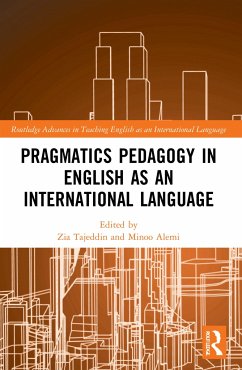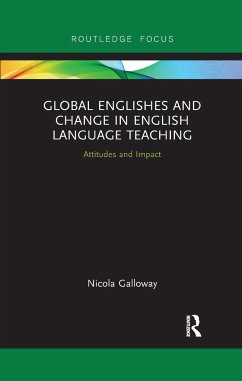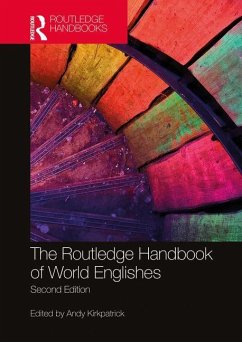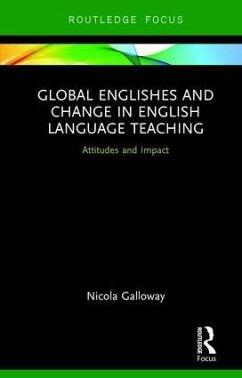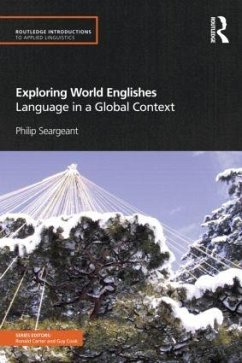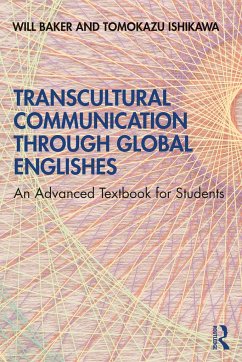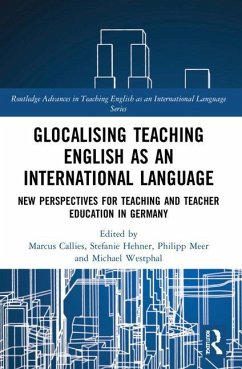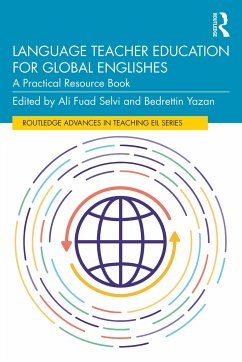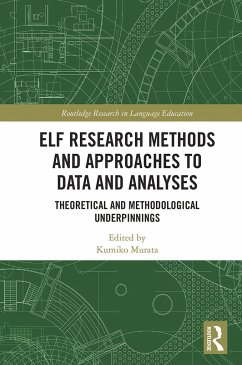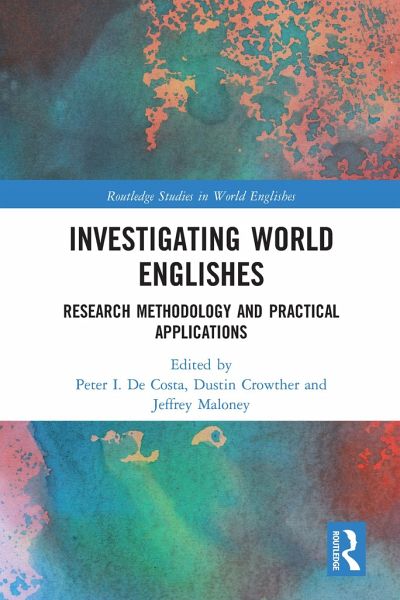
Investigating World Englishes
Research Methodology and Practical Applications
Herausgegeben: De Costa, Peter I.; Crowther, Dustin; Maloney, Jeffrey
Versandkostenfrei!
Versandfertig in 6-10 Tagen
46,99 €
inkl. MwSt.
Weitere Ausgaben:

PAYBACK Punkte
23 °P sammeln!
This book provides readers with an in- depth understanding of the methodological tools that have to date been implemented within World Englishes (WE) research.It serves as a tool to allow for better methodological rigour in interpreting prior research, as well as in conducting future research in this important area of sociolinguistic investigation. This book explores various methodological tools, ranging from corpus analysis to ethnography to questionnaires, demonstrating how such approaches have been used to address a wide range of empirical topics common to WE research. With chapters dedicat...
This book provides readers with an in- depth understanding of the methodological tools that have to date been implemented within World Englishes (WE) research.
It serves as a tool to allow for better methodological rigour in interpreting prior research, as well as in conducting future research in this important area of sociolinguistic investigation. This book explores various methodological tools, ranging from corpus analysis to ethnography to questionnaires, demonstrating how such approaches have been used to address a wide range of empirical topics common to WE research. With chapters dedicated to specifi c methodological approaches and demonstrating these approaches in context, readers are provided with the knowledge necessary to both pursue future empirical inquiry as well as consider existing research from a critical perspective. The book will also explain the similarities and differences that exist between WE and English as a Lingua Franca (ELF) and English as an International Language (EIL).
It serves as a tool to allow for better methodological rigour in interpreting prior research, as well as in conducting future research in this important area of sociolinguistic investigation. This book explores various methodological tools, ranging from corpus analysis to ethnography to questionnaires, demonstrating how such approaches have been used to address a wide range of empirical topics common to WE research. With chapters dedicated to specifi c methodological approaches and demonstrating these approaches in context, readers are provided with the knowledge necessary to both pursue future empirical inquiry as well as consider existing research from a critical perspective. The book will also explain the similarities and differences that exist between WE and English as a Lingua Franca (ELF) and English as an International Language (EIL).





